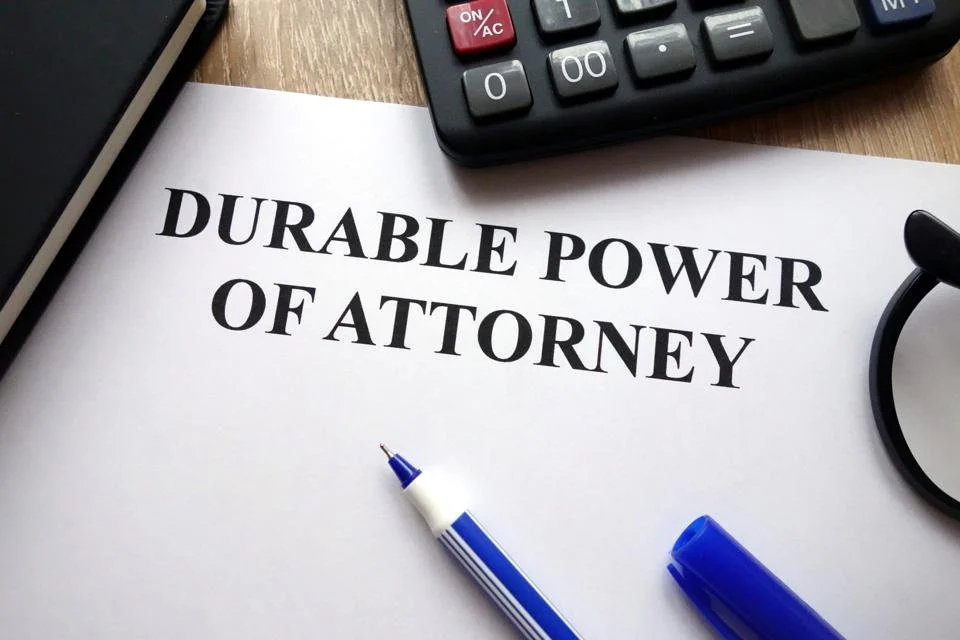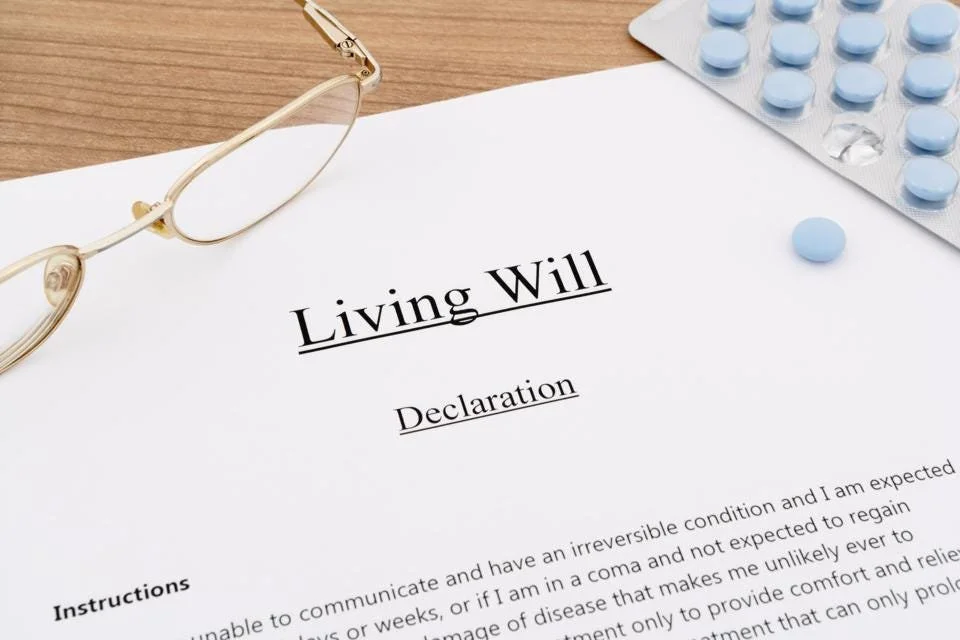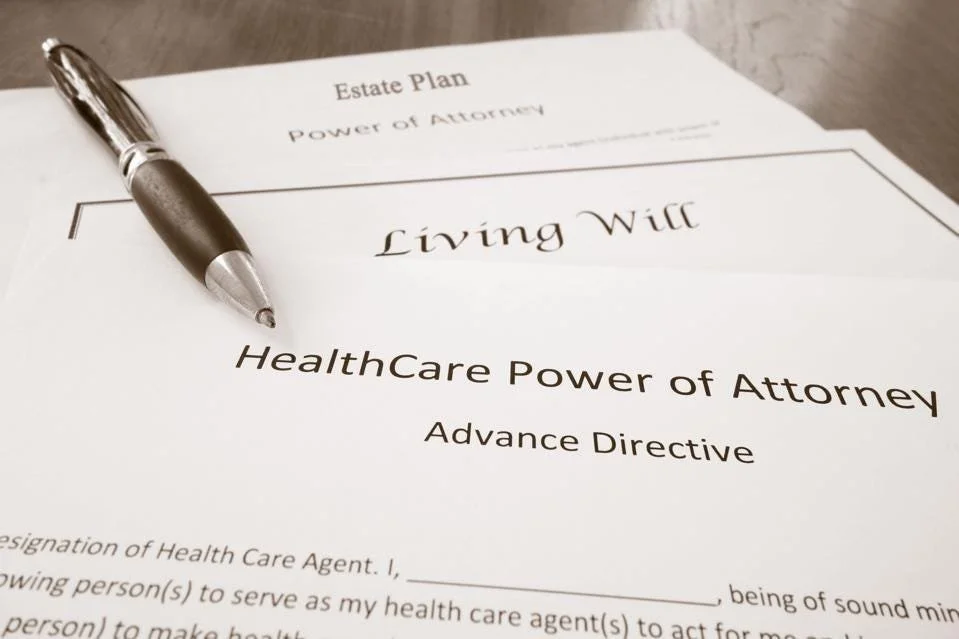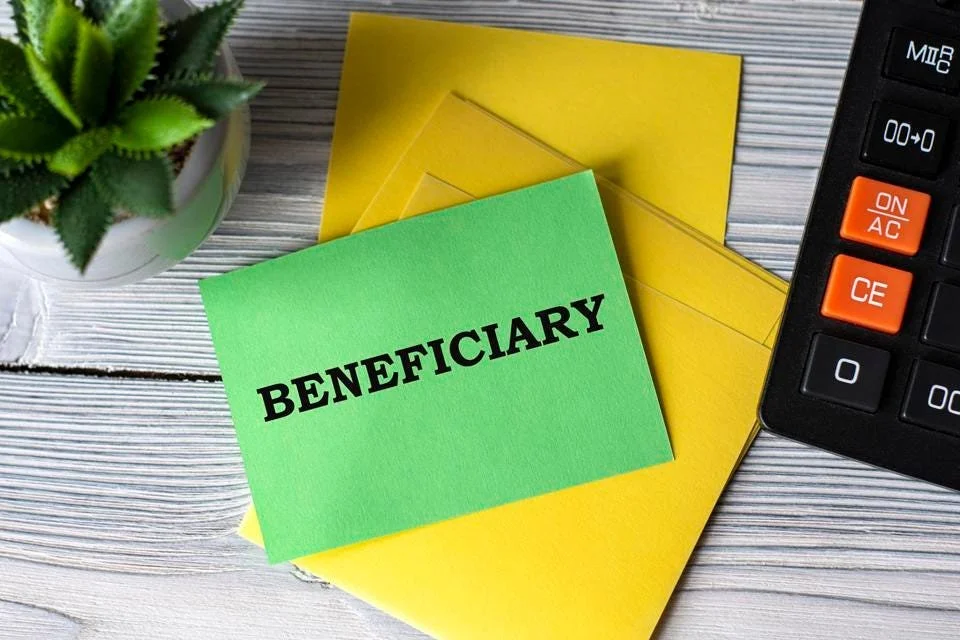What Are Durable Powers of Attorney, Living Wills, Health Care Proxies, Declarations of Homesteads and Beneficiary Designation Forms?
Estate planning handwriting sign on the sheet.-GETTY
Along with a Will and a Trust, the most common documents used in estate planning are Durable Powers of Attorney, Healthcare Proxies, Declarations of Homestead and Beneficiary Designation Forms. Although these documents are in many ways ancillary to the Will and the Trust, they are integral to your estate plan. It is important to have all of these documents up to date and properly coordinated with your estate plan. Here is a brief explanation of each:
Durable power of attorney document, pen, glasses and calculator on desk- GETTY
What is a Durable Power of Attorney?
A Durable Power of Attorney (DPOA) is a legal document that allows you to appoint someone else (called the "Attorney-in-Fact" or "Agent") to act on your behalf in financial and legal matters. The term "durable" means that the POA remains in effect even if you become incapacitated or otherwise unable to make decisions for yourself.
The person you appoint as your Attorney-in-Fact will have the authority to make decisions and take actions on your behalf that you would normally be able to make or take yourself, if you were there and you were under no mental or physical disability. This can include paying bills, managing bank accounts, investing assets, selling property, and more.
The DPOA is a useful tool for individuals who want to ensure that their financial and legal affairs will be taken care of in the event that they become unable to manage them themselves. It can also be useful for people who are going to be away from home for an extended period of time and need someone to handle their affairs in their absence. Think of having a DPOA as having fire insurance on your house – hopefully you will never need it, but if you do it is a blessing.
It is important to carefully consider who you want to appoint as your Attorney-in-Fact, as they will have significant control over your financial and legal affairs. You should choose someone you trust and who is capable of handling the responsibilities involved. You should also make sure that your Attorney-in-Fact understands your wishes and is willing to follow them. Usually, I recommend that clients either not give the DPOA to the Attorney-in-Fact to your agent, until their services are needed to manage your affairs or have the DPOA only become active if you are incapacitated.
Living will with pills and eyeglasses on wooden table- GETTY
What is a Living Will?
A Living Will is a legal document that allows you to specify your wishes for medical treatment in the event that you become unable to make decisions for yourself due to a terminal illness, unconsciousness, or other incapacitating condition. The purpose of a Living Will is to ensure that your wishes are carried out, even if you are unable to communicate them to your healthcare providers or family members.
A Living Will typically summarizes your preferences for medical interventions such as life support, pain management and organ donation. It may also appoint a Health Care Proxy or Durable Power of Attorney for healthcare, who is responsible for making decisions on your behalf, if you are unable to do so.
It is important to note that a Living Will only goes into effect in certain circumstances. It does not supersede your right to make decisions about your own medical care while you are able to do so. It is important to keep your Living Will up to date and to discuss your wishes with your Health Care Proxy and family members to ensure that they are aware of your preferences.
Healthcare Power of Attorney, Living Will document, and Estate Plan- GETTY
What is a Health Care Proxy?
A Health Care Proxy, also known as a Health Care Durable Power of Attorney or a Medical Power of Attorney, is a legal document that allows you to appoint someone to make healthcare decisions on your behalf, if you become unable to do so due to a terminal illness, unconsciousness or other incapacitating condition. The person you appoint as your Health Care Proxy is called your healthcare agent.
Your Health Care Proxy can make decisions about a wide range of medical treatments and procedures, including life support, pain management and organ donation. They may also be responsible for communicating your wishes to your healthcare providers and advocating for your interests while you are receiving medical care.
It is important to choose your Health Care Proxy carefully and to discuss your wishes and values with them before you become incapacitated. You should also make sure that your Health Care Proxy has a copy of your Living Will, if you have one, and any other relevant medical documents. Your Health Care Proxy should be someone you trust to make decisions that are consistent with your values and best interests.
Rural Landscape with a farm in engraving style. Hand drawn and converted to vector illustration- GETTY
What is a Declaration of Homestead?
A Declaration of Homestead is a legal document that provides certain protections for the homeowner and their family in the event of financial hardship. A Homestead Declaration is typically filed with the local government and is used to establish a homeowner's primary residence as a protected asset.
The specific protections provided by a Homestead Declaration vary by state, but they may include:
A certain amount of equity in the home that is exempt from creditor claims, bankruptcy and other legal actions.
A prohibition on the forced sale of the home to satisfy certain debts, such as those related to medical bills or credit card debt.
In order to file a Homestead Declaration, the homeowner must typically be the legal owner of the property and must use it as their primary residence. Some states also have requirements around the size of the property or the number of people living in the home. Commonly, buyers place a Declaration of Homestead on their residence when they buy the property. Beware, that if you refinance a mortgage on the property, the refinancing requires the removal of the Homestead, and you will need to refile a new Declaration after the refinancing.
It is important to note that a Homestead Declaration does not protect the homeowner from all debts or legal actions. It is important to consult with a qualified attorney or legal advisor before filing a Homestead Declaration to understand the specific protections and limitations that apply in your state.
Beneficiary typed on a green paper envelope, and a cactus- GETTY
What is a Beneficiary Designation Form?
A Beneficiary Designation form is a legal document that allows you to specify who should receive the benefits of a financial account or asset, after your death. Beneficiary Designation forms are commonly used for life insurance policies, retirement accounts (such as 401(k) s’ or IRAs), and other financial assets that offer the option of naming a beneficiary.
When you fill out a Beneficiary Designation form, you can name one or more individuals or organizations as your beneficiaries. You can also specify how the benefits should be distributed, such as in equal shares or in a particular percentage.
It is important to keep your Beneficiary Designation forms up to date and to review them periodically to ensure that they accurately reflect your current wishes. If you have any changes to your beneficiaries or distribution preferences, you should update your Beneficiary Designation forms accordingly.
It is also important to note that Beneficiary Designations generally take precedence over the provisions of a Will or Trust. You should review your documents to ensure that your Beneficiary Designations are consistent with your overall estate plan.
When you are creating or revising an estate plan, know that you will need more than a Will and a Trust. Only with the following documents will your estate plan be complete to cover your needs: a Durable Powers of Attorney, Living Wills, Health Care Proxies, Declarations of Homestead and Beneficiary Designation forms as well.






